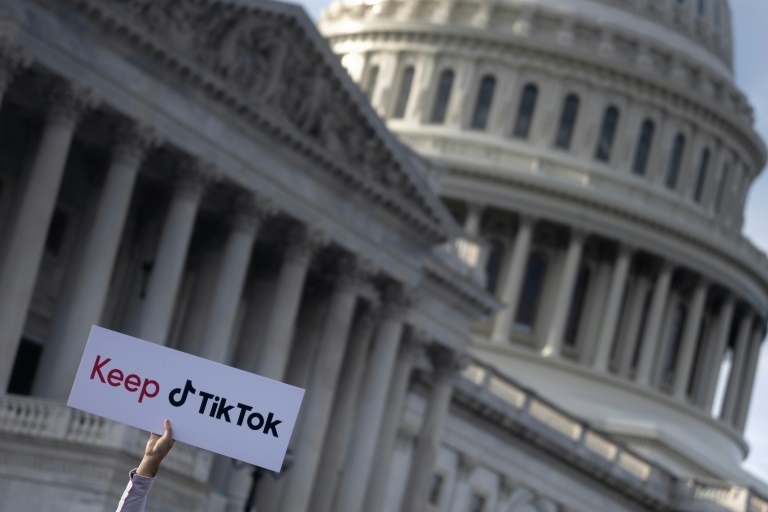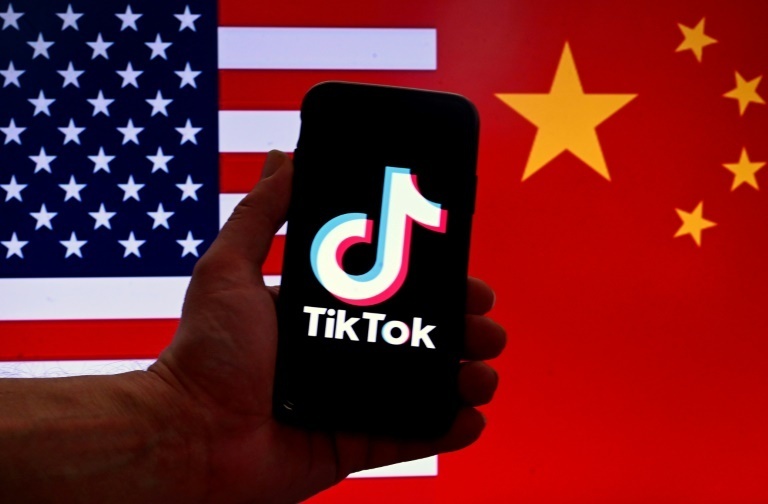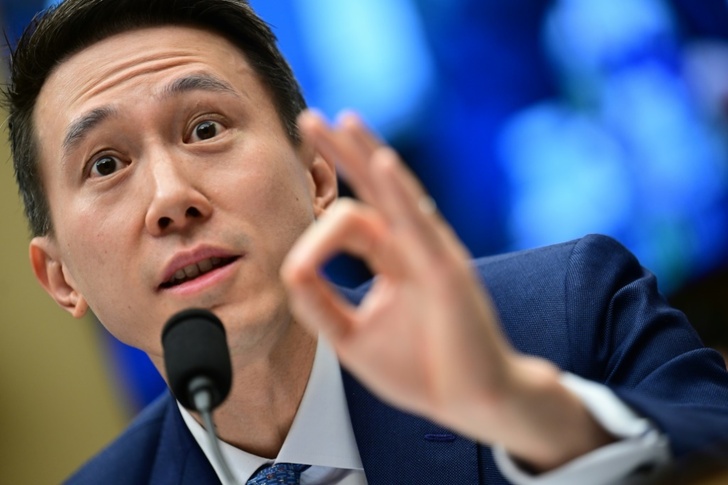With a giant billboard at Washington's main train station, an army of influencers on Capitol Hill and ad campaigns in the political press, TikTok is pulling out all the stops as it fights for survival in the US capital.
The Chinese-owned video-sharing platform has been on a charm offensive to persuade Washington's political elite it is a boon for millions of Americans -- and not a security threat that needs to be neutralized.
"Hi guys, I'm here outside of Lindsey Graham's office here in the United States Senate," greeting card maker @sparksofjoyco told her 90,000 followers in a video filmed at the door of the Republican senator.
"I'm going to be in contact to tell them the impact that TikTok has on my life and my business and share the concerns that you guys have shared in the comments."
It looked like an innocent enough vignette featuring a TikTok user sufficiently worried by the threat to her favorite app to travel to Washington, although the protest may not have been as spontaneous as it initially appeared.
The influencer had been pictured hours earlier, arm in arm with TikTok CEO Shou Zi Chew.
The Singaporean executive -- dressed-down in jeans and a hoodie -- has been ubiquitous on his own platform and in traditional media, ahead of his hotly anticipated appearance Thursday before lawmakers.

Lawmakers and government officials of all stripes have fretted that TikTok's Chinese owner ByteDance could pass Americans' data to the government in Beijing and are calling for it to be removed from app stores or sold to a US firm.
Supporters argue that the platform is no more prone to data breaches than any other apps that collect personal information -- and that lawmakers should be working to firm up privacy laws rather than spoiling their fun.
- 43 lobbyists -

The app -- which recently revealed it has 150 million US users -- is already outlawed on all federal government devices, but lawmakers and President Joe Biden are weighing an all-out nationwide ban.
TikTok has deployed 43 lobbyists, including aging but influential former senators from both parties, to argue its case.
Almost every morning when Washington's movers and shakers wake up to Politico's Playbook newsletter, they encounter a message from TikTok that is designed to allay their fears of Chinese surveillance.
"We're committed to protecting your personal data, while still providing you with the global TikTok experience you love," the company says.
Lobbying is nothing new in the nation's capital, where it is common to encounter influence groups in the corridors of Congress, looking for elected officials to court.
Sarah Bryner, a researcher at OpenSecrets, which tracks corporate lobbying, says advertising in Washington tends to be targeted at political types -- primarily lawmakers and their staffers -- rather than the general public.
For TikTok, this lobbying operation ran to more than $5.3 million in 2022, according to OpenSecrets.
That is more than Twitter spent for the same purpose and, more importantly, 20 times what the video-sharing platform was paying for lobbying campaigns in 2019.
Whether the lavish budgets will change hearts and minds remains to be seen, but the early signs do not bode well.
Opening the hearing for TikTok's boss on Thursday, Republican House Energy and Commerce Committee chair Cathy Rodgers appeared to already have made up her mind.
"Your platform should be banned," she said.
cjc/ft/sst
© Agence France-Presse
Your content is great. However, if any of the content contained herein violates any rights of yours, including those of copyright, please contact us immediately by e-mail at media[@]kissrpr.com.
Source: Story.KISSPR.com

